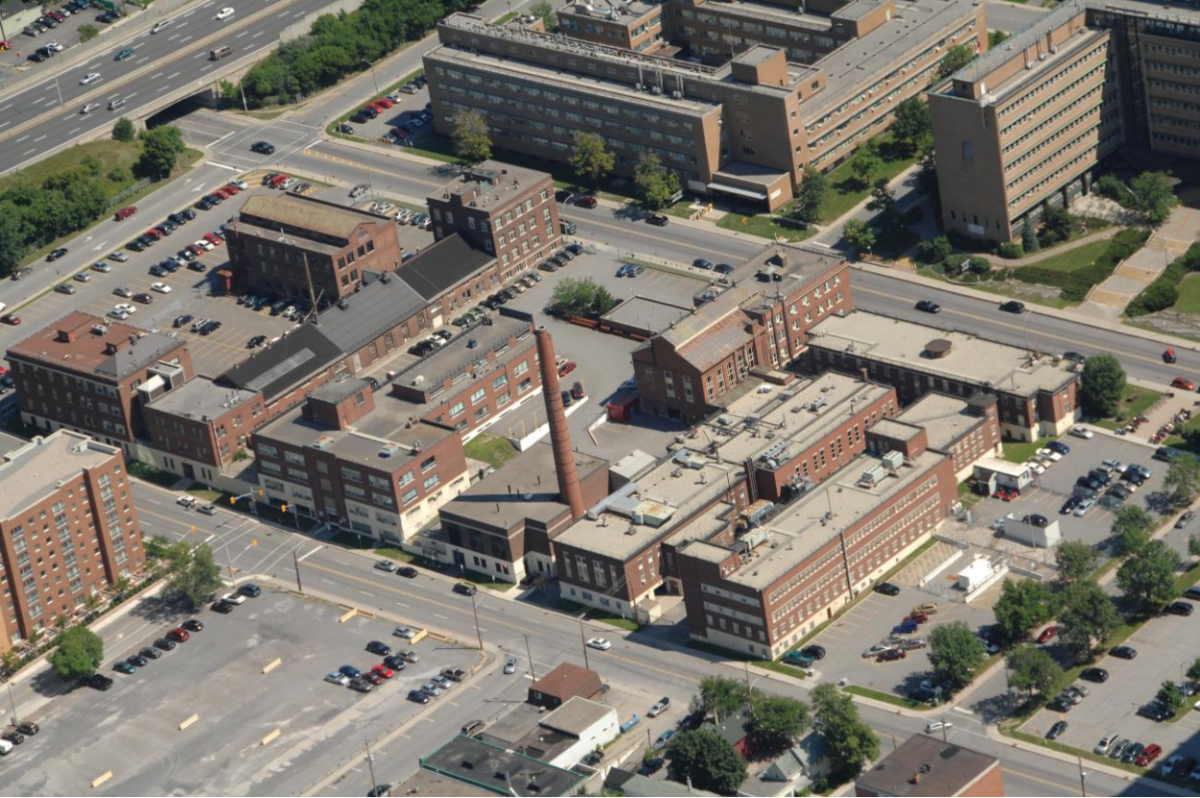UPDATE: City council on March 6 approved the zoning change for the film production hub. Council also approved the heritage designation of the Booth Street Complex and zoning changes for the redevelopment.

The city’s planning committee on Thursday gave a unanimous thumbs up to a proposed new $40-million “creative hub” in Ottawa’s west end that would include the national capital’s first film and television soundstage campus.
The Ottawa Film Office and Toronto-based TriBro Studios have banded together to bring the project to life on an already developed, 8.4-hectare parcel of land on the former Greenbelt Research Farm, near the intersection of West Hunt Club Road and Woodroffe Avenue in Nepean.
If the project gets all the remaining necessary approvals, including the green light from Ottawa city council, the plan is to get shovels in the ground this summer, Ottawa Film Commissioner Bruce Harvey told councillors on the planning committee.
Coun. Jan Harder, who chairs the committee, called the project “overwhelmingly exciting.”
The project is expected to create 500 construction jobs and 500 full-time jobs in Ottawa’ film, TV and animation sector, as well as generate between $25 and $40 million in economic activity annually once it opens for business, city staff told the committee.
Many students who come to Ottawa’s colleges to study animation, as an example, end up leaving the city for jobs in Montreal, Toronto and Vancouver, some city councillors and speakers noted. They argued the soundstage campus will help attract and retain that talent.
The “creative hub” will include four 20,000-square-foot sound stages, as well as production, training and office space. Harvey described a sound stage as an insulated “huge box” that’s typically at least 40-feet high, so crews can build anything from houses to boats to aircraft for sets.
The amount of available sound stages worldwide isn’t meeting industry demand, Harvey told reporters. If the centre in Ottawa were up and running right now, it would be packed, he claimed.
That day is expected to be sometime in 2020, according to Harvey.
Ottawa’s film and TV industry is much more active than many people realize, Harvey said, but the city has historically lacked “a profile” and a “gathering place” for creators in the industry.

Get daily National news
“If you have a hockey rink somewhere or you have football field or you have a national arts centre, everyone knows: ‘Oh, that’s an activity that happens in this city.'” he said. “Very few people in Ottawa even know that Mickey Mouse is created here.
After launching public consultations on the proposal in the summer and hosting an open house in early September, the board of directors of the National Capital Commission (NCC) — which owns the property — approved an amendment to the Greenbelt Master Plan in November to allow the proposed development.
Committee approves 2,000 new homes in Riverside South, Booth Street Complex heritage designation
The planning committee on Thursday also approved zoning amendments to allow new subdivisions in Riverside South that would see just over 2,000 homes built on old farmland south of Earl Armstrong Road.
The first of the two applications in question, submitted by Claridge Homes, proposes building 737 new homes between River and Spratt roads in the south Ottawa community. The second application, submitted by Riverside South Development Corp., proposes 1,350 new residences on two addresses off Spratt Road and a parcel of land between River Road and Southbridge Street.
The corporation is a partnership between local developers Urbandale Construction and Richcraft Homes, who have agreed to tack on a special development charge to new homes they build in Riverside South to raise $30 million for Stage 2 LRT.
Specifically, the funds — together with a $50-million cash injection promised by the former provincial Liberal government — will help pay for the 3.4-kilometre extension of the north-south Trillium Line to Limebank Road.
The City of Ottawa’s original Stage 2 plans for the Trillium Line had the trains stopping at Earl Armstrong-Bowesville station. The additions to the Trillium Line will cost approximately $663 million in total and the tracks would open to riders in 2022, according to the city.
The planning committee also agreed with the built heritage sub-committee that an old, industrial federal government office complex located just west of Ottawa’s downtown core should get heritage designation.
Canada Lands Co.’s plans to redevelop the “Booth Street Complex” include five new high-rises and additions to existing buildings, as well as urban squares and parks.
All these applications, too, will go to city council for approval on March 6.









Comments